Just like other types of trading, binary options trading can yield massive profits if you are able to correctly predict the movements of the market.
With binary options, you do not need to own an asset to profit from market movements. Instead of actually buying a share when you believe the share price is about to go up, you buy a binary option that pays out if your prediction comes true. In this sense, binary options are similar to contracts for difference (CFD:s).
Binary options are available for a wide range of underlying asset types, such as company shares, commodities, currency, and cryptocurrency. You can even speculate on the movements of indices.
Binary Options Brokers
Latest Posts
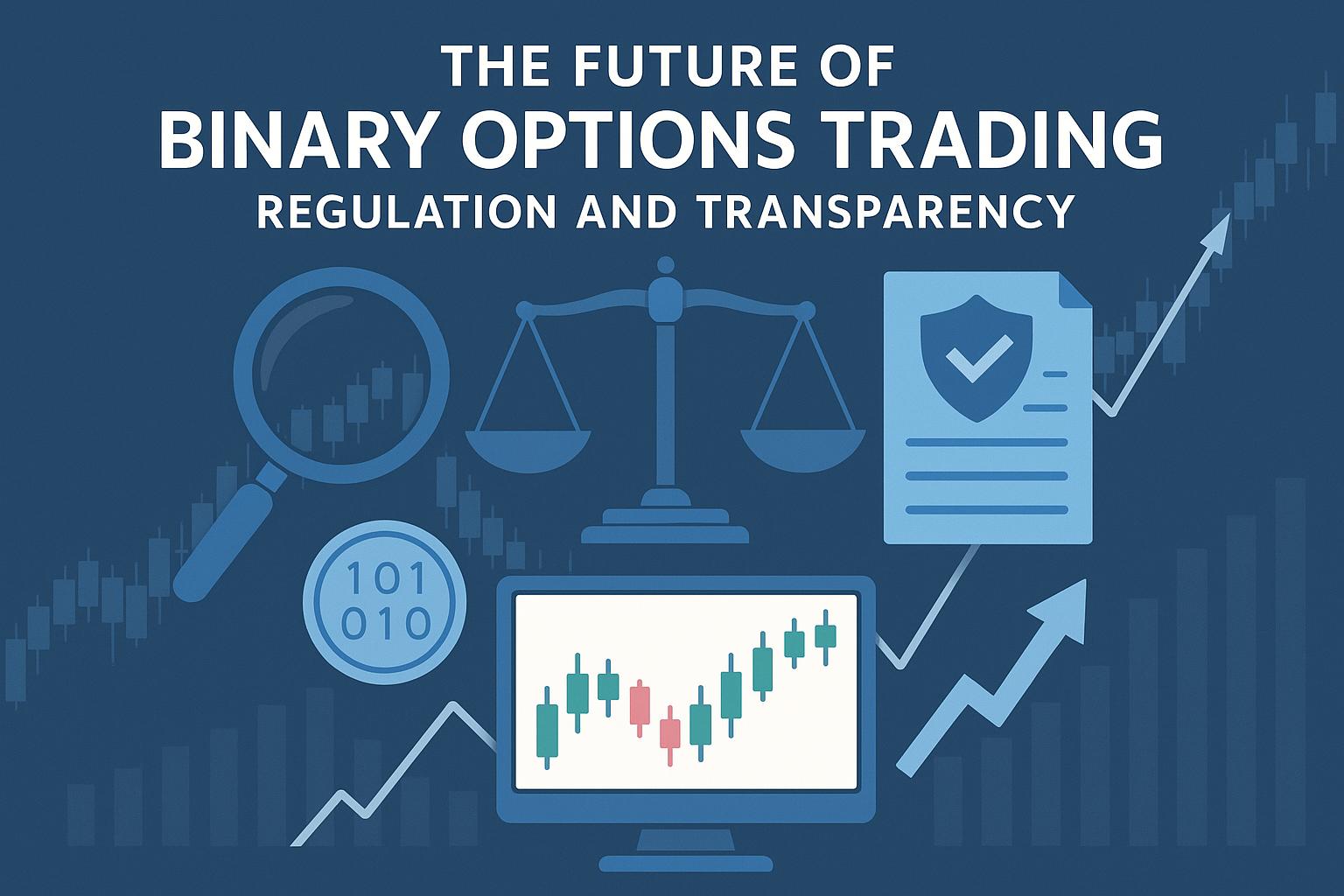
The Future of Binary Options Trading: Regulation and Transparency
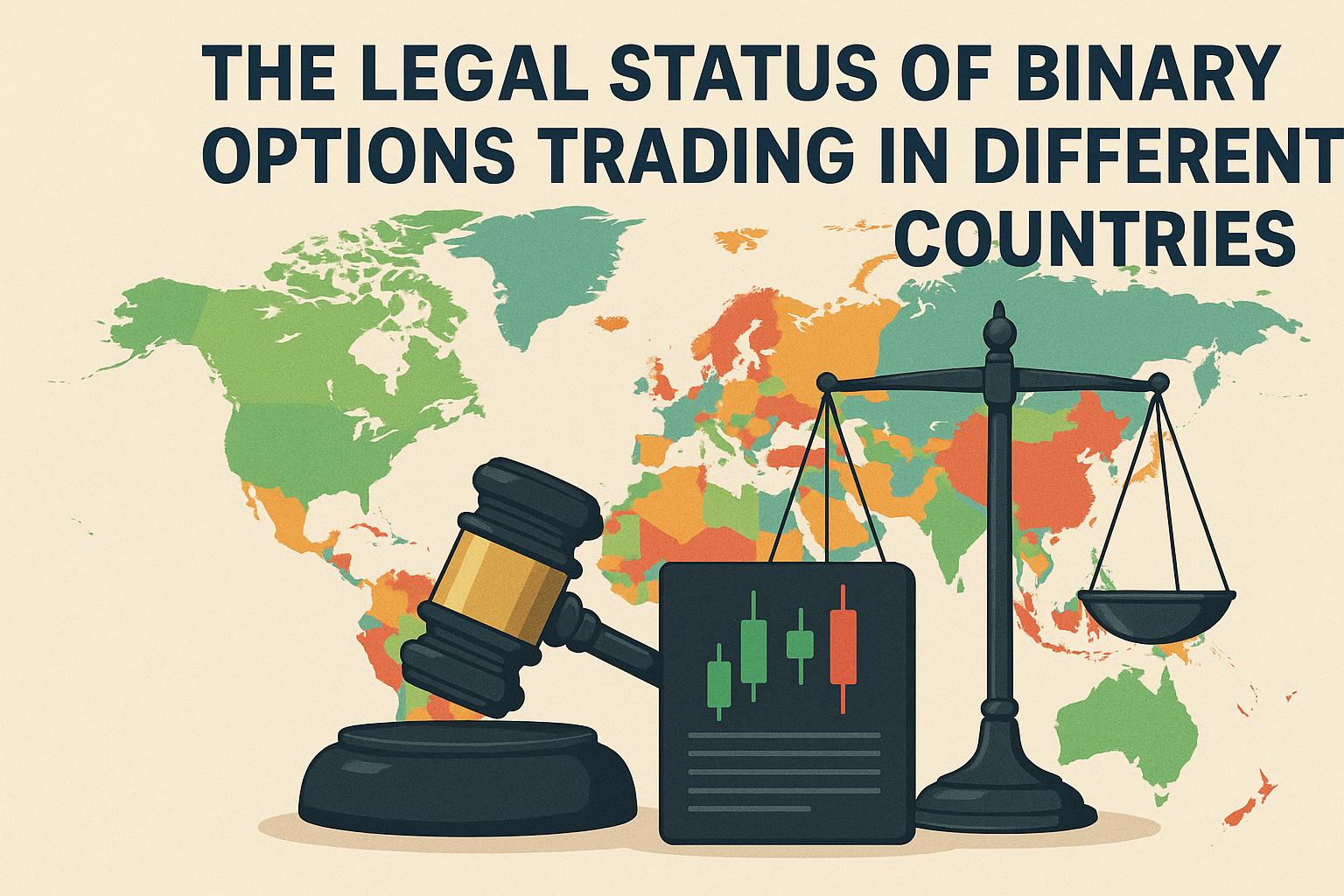
The Legal Status of Binary Options Trading in Different Countries
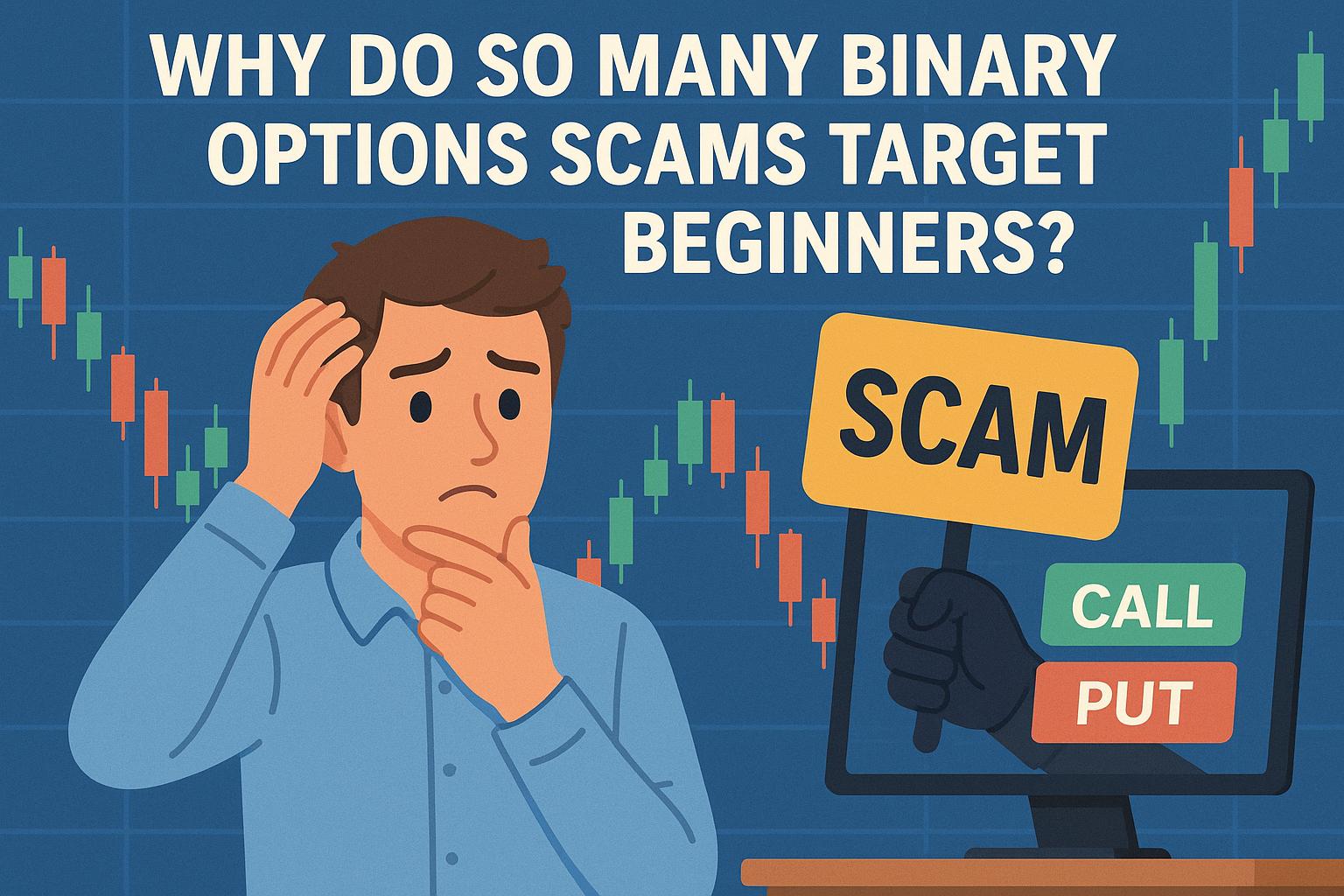
Why Do So Many Binary Options Scams Target Beginners?
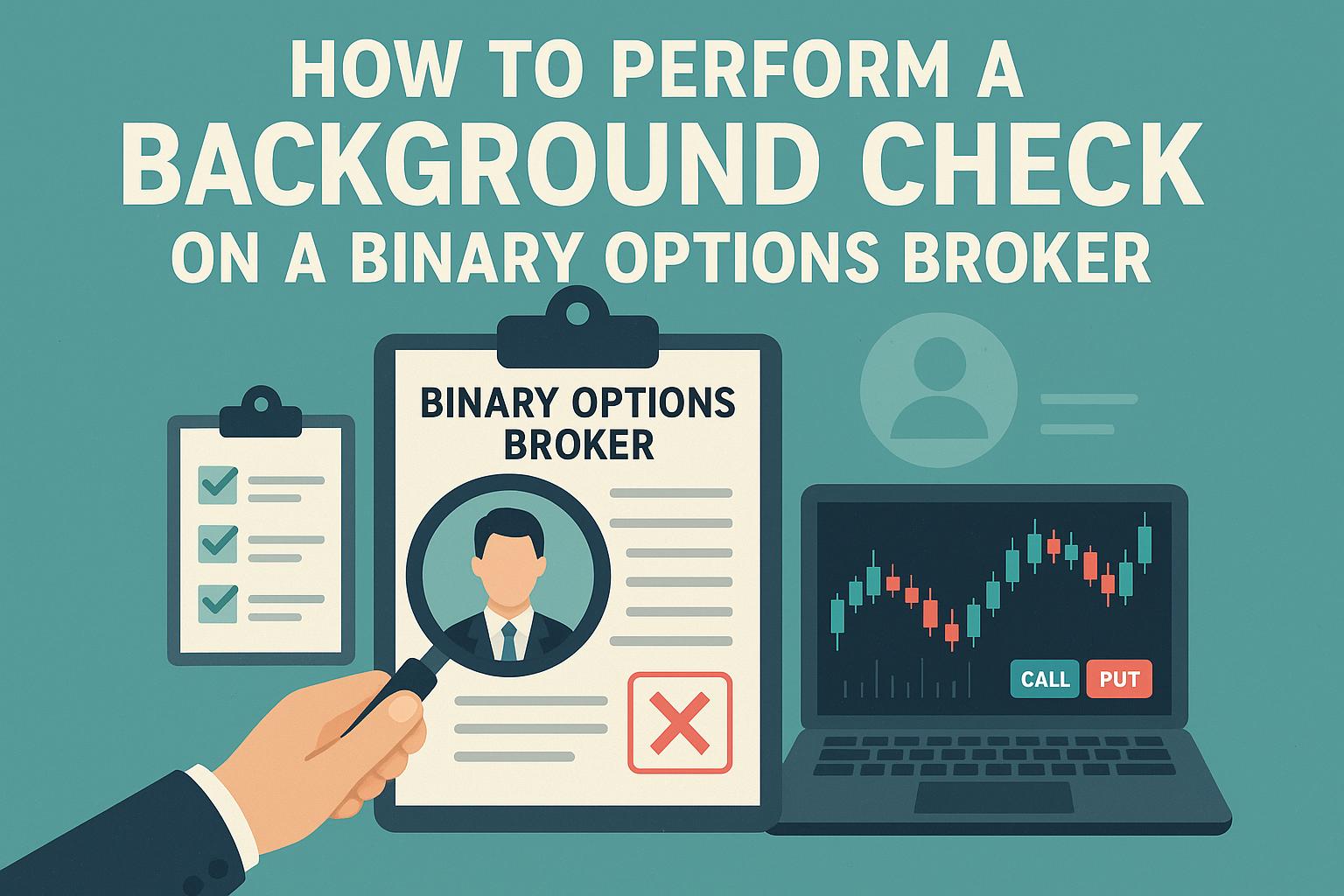
How to Perform a Background Check on a Binary Options Broker

Real-Life Stories of Binary Options Scams and How Traders Lost Money

How to Verify If a Binary Options Broker Is Legitimate
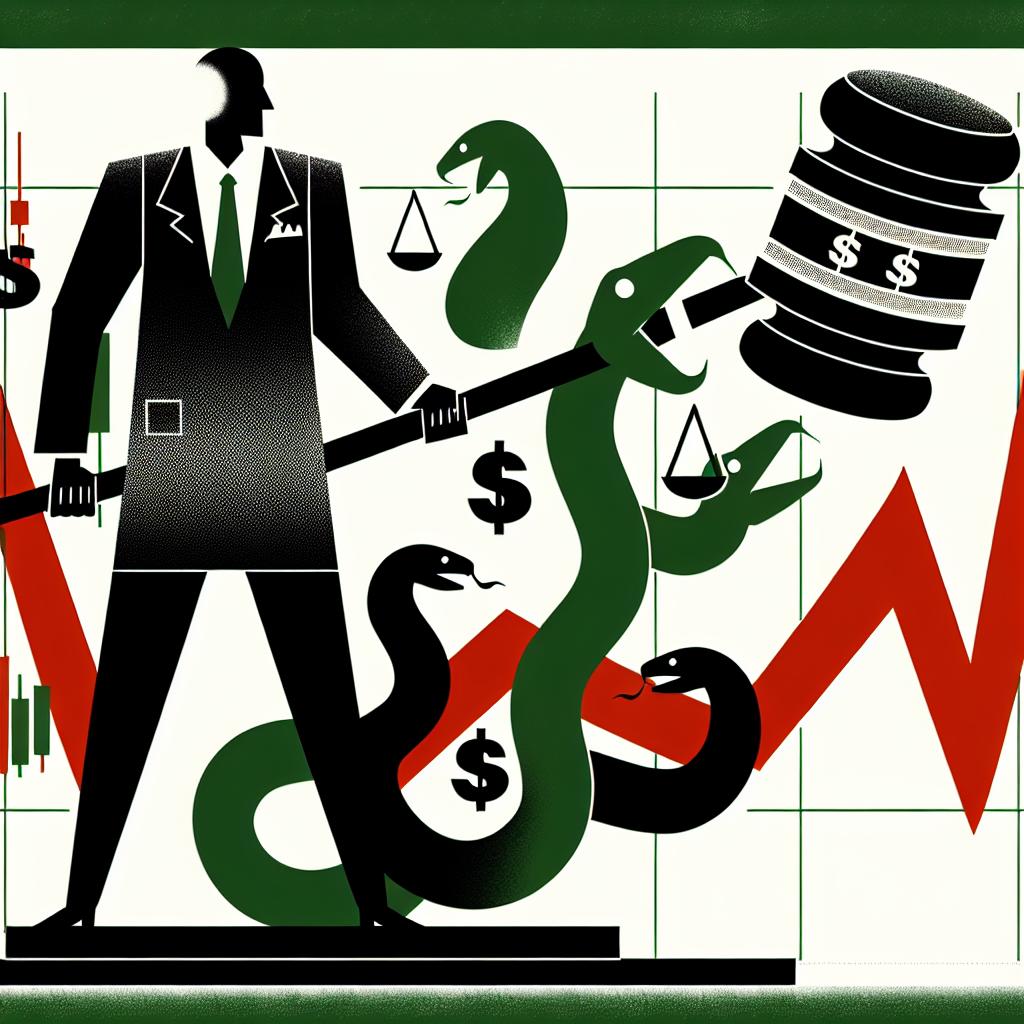
The Role of Financial Regulators in Cracking Down on Binary Options Fraud

Are Chargebacks Possible for Binary Options Scam Victims?
What Is a Binary Option?
A binary option is one of the simplest — and riskiest — types of trading contracts out there.
It’s called “binary” because with a classic binary option there are only two possible outcomes: you either win a fixed amount or you lose everything you risked. That’s it. No in-between. No partial profits. No stop-loss point limiting your loss.
With classic binary options, you’re betting on a yes-or-no question: Will the price of the underlying asset be above or below a certain level at a certain time?
If your prediction is right, you get paid a fixed payout (usually 70% to 90% return). If you’re wrong, you lose your full stake.
It’s simple, fast, and brutally final.
You are not trading against other traders, you are making a bet and your broker is also your counterpart. If you win, the broker loses money, and vice versa.
In this article, we will chiefly look at the classic binary option, which has a truly binary outcome. It is good to know, however, that some binary options trading platforms also offers newer and more complex binary options, where the outcome is no longer binary. They are still marketed as binary options, but there are more than two possible outcomes. As always, it is important to read the fine print and never risk any money on a financial product you do not fully understand.
Who is my counterpart?
When you buy and sell shares on a stock exchange, your counterpart is other traders. That is not the case with binary options. It is your broker that creates the binary options and serve as your counterpart.
Binary options brokers create the binary options in a way that gives them a statistical edge over the traders. It is not simply a ”toss a coin” scenario where you and your counterpart each have the same chance of winning.
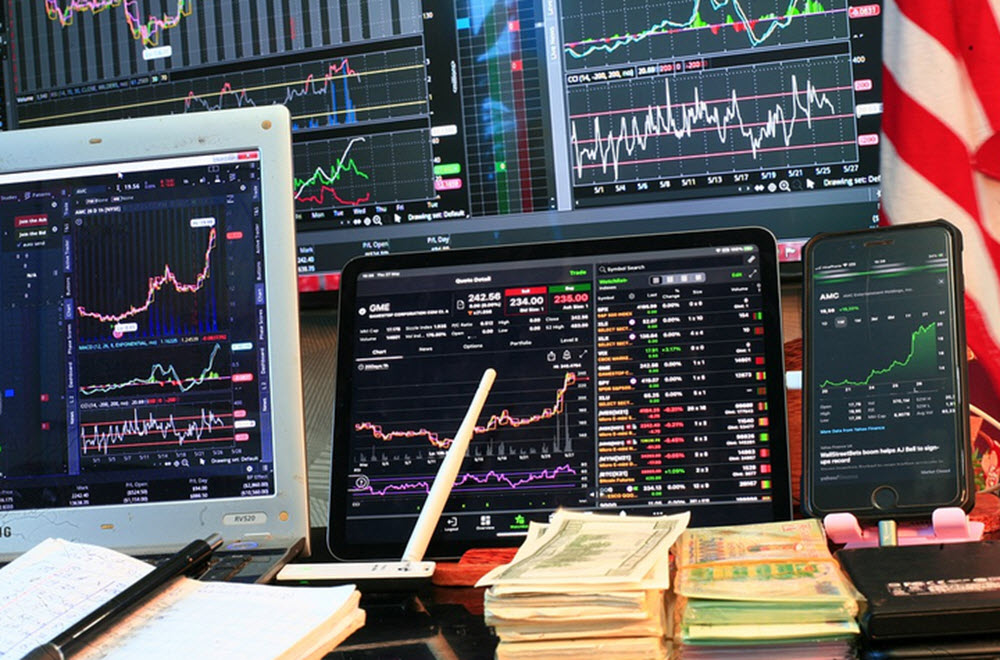
How a Classic Binary Option Works
Let’s say you’re trading a binary option based on the price of gold. You open a contract (by a binary option) that says: “Gold will be above $2,000 per ounce at 3:00 PM today.” You place your stake, say $100. The payout is 70% for this option.
- If at 3:00 PM, gold is trading above $2,000 — you win and get $170 into your account (your $100 stake plus a $70 profit).
- If it’s not above 2,000, you lose the entire $100 you risked.
There’s no partial credit.
There’s no adjusting your trade once it’s placed.
You’re locked in the moment you click “confirm.”
It can feel closer to putting your money on red at the roulette table than traditional investing or trading, because the payout doesn’t depend on how far the price moves—just whether you were right or wrong at expiration.
Why Inexperienced Retail Traders Like Binary Options
- One reason binary options exploded in popularity is how simple they sound. You don’t need to worry about margins, complex charts, stop-losses, take-profit points, or closing trades manually. You know exactly how much you will profit if you are right and exactly how much you will lose if you are wrong – before you even place the trade.
- Binary options can be fast, and many platforms offer binary options that will expire in minutes or even less. This can be appealing if you like instant results. While it is possible to buy binary options with longer lifespans, many platforms lean heavily towards the super short-term ones that expires quickly, and this has helped bring in impatient traders.
- Binary options are available based on a wide range of underlying assets and products, making it easy to gain exposure to forex, cryptocurrency, commodities, stock indexes, individual stocks, and more, depending on the platform.
- The structure makes it super beginner-friendly on the surface. No complex math. Just predict and wait.
Why Binary Options Can Be Unsuitable for Inexperienced Traders
- The simplicity hides the danger. Because of the “all or nothing” structure, you’re risking 100% of your trade amount every time. There’s no adjusting halfway through if the market moves against you. You’re trapped until expiration. If you buy stocks outright, you can put in a stop-loss that will activate, e.g. before you lose more than 90% of your stake. With classic binary options, this is not possible. When you lose, you always lose the entire stake.
- The math is against you. You are risking 100% each time. When you get paid, you typically get paid in the 70% to 90% range, depending on the binary option. The odds are stacked against you by design.
- Unlike stocks, where the market structure tend to rewards patience and trend following, super-short binary options depend on ultra-short-term prediction — one of the hardest skills to master in trading.
- It requires insane precision. Even if you opt for a longer-term binary option, you’re not betting on whether the price will move in a certain direction over time. You’re betting on where it’ll be at one frozen moment in time. That’s tough even for pros.
- Short-term trading with a binary outcome is very similar to gambling, and it can cause the same sensation in the brain. Anyone that is vulnerable to developing a gambling problem can get into the same shit with binary options. As an added bonus, it is more difficult to understand what´s happening, because we are ostensible not gambling at all – we are skilled traders analyzing the markets and doing properly calculated predictions about real-world stock prices, commodities, and currency exchange rates. After a few successful trades, we all believe we absolutely have a neck for this, and a long row of losses is only a small stumbling block that someone with grit and determination will overcome with a generous dose of persistence.
- Binary options have a huge, and well deserved, reputation problem. A lot of scammers have jumped into the space, calling themselves binary options brokers. They are offering huge bonuses and wild payout promises, but delivering shady withdrawal policies, rigged platforms, and fake price feeds.
- Due to a combination of factors, including the addictive potential of short-term binary options and the prevalence of fraudsters using binary options to lure in suitable victims, many of the stricter financial authorities around the world have banned brokers from offering binary options to retail traders (traders that are not professional traders). The aim is to steer retail traders away from binary options completely.
This means that it is now very difficult to find reputable brokers – the ones that want to be licensed by reputable financial authorities – that still offer binary options to retail traders. Retail traders that are still deadset to risk their money on binary options rather than anything else will have to take a chance with a broker/trading platform that is either unlicensed or licensed by one of the lax financial authorities. If something goes wrong – which it often do – the trader don´t have much recourse. Sure, you can always file a police report if you have been defrauded, and you can also try to go after the broker in civil court in the tropical island kingdom where the company is registered, but you wont have the backing of a financial authority that takes trader protection seriously.

Leverage
Many brokers that offer binary options also offer leverage. If you use leverage, you borrow money from the broker and use it to finance part of a deal.
Example: Annica wants to risk €500 on a binary option. She takes €50 from her account and borrows the remaining €450 from the broker.
Using leverage is appealing since you can make larger trades. However, it is important to understand that while leverage will amplify profits it will also amplify losses.
Take the scenario above. Let´s say Annica´s prediction of the future did not come true and she lost the money she risked on the binary option. She now has to pay back €450 to the broker. If she had only risked her own €50, she would not be in that situation.
Today, many brokers offer negative balance protection, which means that you can not end up owing them more money than the total value of the assets in your account. Before you rely on this to protect you, make sure you know the exact terms and conditions of the negative balance protection, to avoid surprises.
In many parts of the world, lawmakers and license authorities have limited how much leverage brokers are allowed to give to non-professional traders. This is not unique for binary options trading.
Around the world
Binary Options Bans and Limitations Around the World
Because of the scams and shady practices, a lot of countries cracked down hard on binary options trading. Some banned binary options outright, while others only banned short-term binary options. There are also many financial authorities that prohibits brokers from selling binary options to retail trader. When the prohibitions falls only on the broker, a retail client who buys a binary option has not violated any law or regulation, and can report issues to the authorities without fearing repercussions. If you wan to try binary options despite the risks and warnings than you can find a broker who will let you trade by visiting BrokerListings.
Below, we will take a look at a few examples of countries around the world where binary options are banned or heavily restricted.
Israel
In 2017, Israel became the first country in the world to enact a complete ban on binary options, including both domestic and international activity. Up until then, a lot of fraudsters based in Israel had being using binary options as a lure to scam people. The Israeli ban is very strict and comprehensive; not only does it ban anyone from selling binary options to traders in Israel, it also bans any company based in Israel from selling binary options to clients anywhere in the world.
The United States
In the U.S., only regulated exchanges approved by the Commodity Futures Trading Commission (CFTC) are allowed to offer binary options to anyone – retail clients and professionals alike.
All the exchanges that are allowed to offer binary options are Designated Contract Markets (DCMs). At the time of writing, only three DCMs are offering binary options in the United States: Cantor Exchange, the Chicago Mercantile Exchange (CME), and the North American Derivatives Exchange (NADEX).
Canada
The Canadian Securities Administrators (CSA) prohibit the sale of binary options with a lifespan of less than 30 days to retail investors. That ban is on a national level, but the different Canadian provinces also have the legal authority to enact even stricter bans and limits on binary options if they want to.
Japan
In Japan, binary options are regulated by the Financial Services Agency (FSA). They are not banned outright, but there are a lot of rules to follow – including detailed rules about transparency and marketing. Notably, only long-term binary options are allowed.
European Union
In the European Union, the European Securities and Markets Authority (ESMA) temporarily banned the marketing, distribution, and sale of binary options to retail clients, to give the national authorities within the union time to develop their own rules. Many of the countries adopted similar prohibitions as the ESMA ban, and the temporary ESMA ban was not renewed. Binary options are now regulated at the national level, not at the EU level.
United Kingdom
The Financial Conduct Authority (FCA) prohibits the marketing, distribution, and sale of binary options to retail clients.
Australia
The Australian Securities and Investments Commission (ASIC) has prohibited he marketing, offering and selling of binary options to retail investors since 2021.
Indonesia
Binary options are classified as gambling in Indonesia and are therefore illegal. Indonesia, which is the world´s most populous Muslim-majority country, prohibits gambling both online and offline, and since binary options are classified as gambling in Indonesia – and not as trading or investing – they fall under this general prohibition against gambling.
How Many Binary Options Traders Actually Make Money?
If you listen to some of the brokers and self-proclaimed finance gurus online, you’d think binary options trading is a low-risk, low-effort shortcut to big and easy money. Fast trades, big payouts, simple yes-or-no decisions — how hard could it be? The truth is, making consistent money trading binary options is brutally difficult.
Most people lose.
Not some. Most.
There’s no universal public database tracking every binary options trader in the world, but based on available regulatory reports, legal filings, and broker disclosures — especially from more transparent jurisdictions like the U.S., U.K., Australia, and countries in the European Union — the survival rate looks pretty grim.
Across multiple sources, estimates show that 70% to 90% of binary options traders lose money overall and never become profitable. Reports from UK FCA suggest closer to 80% to 85% of retail traders in binary options end up losing in the long run. That means only 15%-20% either break even or earn some type of profit. And these numbers are from regulated brokers. In unregulated markets, especially the opaque and shady offshore binary world that grew during the 2010s, you have to add all the fraudulent platforms into the calculation, making it even more difficult to not just profit from binary options but also be allowed to withdraw your profits from your trading account.
Why are the numbers so bad, even for binary options platforms that are not fraudulent? It would be easy to simply dismiss traders as “dumb” or “lazy”, or claim that their lack of experience makes them burn through their accounts. But these explanations fail to take into account the the very structure of binary options means that the game is stacked against the trader.
Think about it: When you trade a binary option, you’re risking 100% of your stake for a potential reward of 70% to 90% if you win. That math means you need to win more than 55% to 60% of your trades just to break even. If you win 50% of the time — which would be decent in normal trading — you lose money steadily in binaries.
The house edge is built into the payouts. The odds are designed for you to bleed out – slowly or quickly.
So, Who Are the Traders That Actually Makes Money?
There are traders who manage to make a continuous profit from binary options, but they are not the norm. Generally speaking, traders who manage to stay in the game and actually become long-term profitable trading binary options tend to be extremely selectively about which trades to enter. They manage risk ruthlessly, never risking too much on one bet, and they stay unemotional – neither wins nor losses will cause them to suddenly change their trading pattern. They tend to specialize — usually in one market (like EUR/USD) and learn its rhythms inside and out. They treat binaries as business tools, not gambling tickets. Last but not least, they do what they can to avoid shady brokers – which is easier said than done for a retail trader.
Many of the long-term successful binary options traders are professionals using the regulated platforms in the United States, where they can find binary options that are structured differently than the binary options offered by the average retail platform online.
Underlying Instruments for Binary Options
When you trade a classic binary option, you’re not actually trading the asset itself. You’re making a yes-or-no bet on the price movement of something else — called the underlying instrument. The underlying instrument is what the binary option is built on. It’s the
“thing” whose price you’re predicting.
- Will gold be above $2,000 in an hour?
- Will the S&P 500 finish higher than yesterday’s close?
- Will the euro fall against the dollar by noon?
You’re not buying gold.
You’re not buying the S&P 500.
You’re not buying euros.
You’re betting on their future price — and only for a tiny sliver of time.
Here’s a few examples of asset types that can be the underlying asset for a binary option.
Forex (Currency Pairs)
Probably the most popular underlying assets for binary options.
Currency exchange rates are perfect for short-term speculation because they’re always moving — reacting to news, politics, central bank decisions, economic data.
Binary options built on forex pairs usually involve major players like:
- EUR/USD (euro vs. US dollar)
- GBP/USD (British pound vs. US dollar)
- USD/JPY (US dollar vs. Japanese yen)
- AUD/USD (Australian dollar vs. US dollar)
The global forex market is active 24 hours a day, five days a week. Volatility is usually highest around major news events — think interest rate changes or job reports. Also, when different trading sessions overlap each other, a lot of (high-risk) opportunities can arise.
Commodities
Binary options built on commodities let you bet on whether the price of raw goods will rise or fall over a short time frame.
Typical underlying commodities for binaries include:
- Gold
- Silver
- Crude oil (WTI and Brent)
- Natural gas
Gold especially sees a lot of binary action because it’s emotional — investors rush to it in times of fear and dump it during market euphoria. Oil prices also swing wildly on inventory data, political tensions, and economic forecasts, making it a high-drama, high-risk underlying for binary contracts.
Commodity binaries move fast, especially around news, and can offer clean, sharp moves ideal for short-term bets if you know what you’re watching.
Stock Indices
Instead of betting on one stock company, you can bet on a basket of stock companies.
Stock index binaries are built on things like:
- S&P 500 (U.S. large caps)
- Dow Jones Industrial Average (U.S. blue-chip stocks)
- Nasdaq 100 (U.S. tech-heavy stocks)
- FTSE 100 (UK companies)
- DAX 40 (Germany’s 40 largest exchange-traded companies by market cap)
Here, you’re betting whether the index will be higher or lower by the end of the day or even within the next few minutes. Indexes tend to move on broader economic news — GDP numbers, unemployment reports, central bank meetings. They’re not as wildly volatile as forex or commodities minute-to-minute, but they trend strongly when big news hits, giving clear setups for binary traders.
Individual Stocks
Some binary brokers also offer binaries based on single stocks — not indexes, but individual companies. You might bet whether Tesla’s price will close above $900 today or whether Amazon will dip below $3,000 after earnings are announced.
Common examples:
- Apple
- Amazon
- Tesla
- Meta (Facebook)
- Alphabet (Google)
Stock binaries behave differently because individual stocks are more sensitive to company-specific news: earnings reports, product launches, CEO scandals. Stocks can gap hard (jump up or down between trading sessions), which adds an extra layer of risk for binaries based on them. You’re not just predicting market mood — you’re predicting how the crowd will react to one company’s latest headline.
Cryptocurrencies
In recent years, some brokers started offering binary options based on cryptocurrency exchange rates. Both crypto-crypto pairs and crypto-fiat pairs are available.
Typical crypto underlyings include:
- Bitcoin (BTC/USD)
- Ethereum (ETH/USD)
- Litecoin (LTC/USD)
- Ripple (XRP/USD)
Crypto binaries are extremely volatile and the crypto market itself doesn’t sleep — it trades 24/7, 365 days a year. You can make or lose money fast because Bitcoin can easily move hundreds of dollars in an hour on nothing more than a tweet, a hack, or a rumor. Trading binaries on crypto feels like adding a turbocharger to an already unstable vehicle. Fun for some. Absolute carnage for others.
Alternatives to Binary Options
Binary options sell the dream of fast, simple money. One click. One prediction. Quick payout. But for most traders, the reality turns out different—high losses, shady brokers, and odds stacked so heavily against you that even disciplined traders eventually crumble. If you’re serious about trading and don’t want to get caught in the binary trap, you don’t have to give up on trading altogether. There are other alternatives available that still offer leverage, fast action, and serious profit potential — but with better structures, better tools, and where it is easier to find reputable brokers licensed by serious financial authorities.
Here are a few examples of alternatives that might suit you.
CFDs (Contracts for Difference)
CFDs — Contracts for Difference — can be a good alternative to binary options for people who want fast-paced, leveraged trading but with a properly regulated broker and better terms and conditions.
With CFDs, you don’t own the underlying asset (stock, index, commodity, crypto, etc). You’re simply betting on whether the price will rise or fall, which makes this similar to a binary option. With a CFD, you can close a trade whenever you want. You can scale your trade size. You can use stop-losses and take-profit targets. You have real trade management at your fingertips— something binary options traders don’t.
CFDs come with serious leverage and need careful risk control. But they treat you like a real trader, not a gambler.
Options
If you like the concept of predicting market direction but hated the “all or nothing” nature of binary options, options are a natural upgrade.
Options — the standard kind used by professional traders — will let you bet on a stock, index, or currency, or something else, moving up or down. The difference? You’re not locked into an instant win/lose outcome at a fixed time, since it is very common to sell on the options contract to someone else long before the option expires. With that said, options do have an expiry date that must be taken into consideration; they are not open-ended instruments that you can hold on to indefinitely.
Examples of variables to consider when buying an option:
- Strike price
- Premium
- The lifetime of the option (expiration date)
With an option, you can not lose more than the premium (purchase price for the option) if things go bad, but the upside is unlimited.
Learning how to use options in a smart way takes effort, and there are many terms and quite a lot of jargon to handle (calls, puts, Greeks, volatility models, European-style, and so on). But once you understand them, they offer both flexibility and complexity, and the upside is not capped.
Futures Contracts
If you want to go even heavier, futures trading is another real alternative. Futures contracts let you agree to buy or sell something (oil, gold, stock indexes, even Bitcoin now) at a future date for a price you set today. Both parties are bound by the futures contract.
Futures are:
- Ultra-liquid for major assets
- Highly standardized
- Exchange-traded, which increases transparency, trader protection, and protection against counterparty risk
- Suitable for a variety of trading styles, including day trading and swing trading
Futures are intense. There is typically a lot of margin involved, and you need to be approved for a margin account with your broker. Movements are fast, and losses can pile up quickly. Futures aren’t for casual traders, but if you’re serious about leveling up, they can be worth the steep learning curve.
Spread Betting (in some countries)
If you live in the U.K. or certain other parts of Europe, spread betting is another alternative. In the UK, spread betting became popular because of preferential tax treatment.
With spread betting, your profits or losses depend on how far the price moves, not just whether you were right or wrong. Unlike binary options, there’s no artificial win/lose cutoff. The more the market moves in your favor, the more you make. The more it moves against you, the more you lose. Spread betting can be extremely risky if you over-leverage, but it’s regulated and tax-free in some countries.
Financial spread betting is especially popular in the United Kingdom, where it is regulated by the UK Financial Conduct Authority (FCA). UK spread-betting have many similarities to the futures and options markets, but the “charge” occurs through a wider bid-ask spread, and spread-betting is taxed differently than trading on stock exchanges and futures exchanges. Spread-betting is not limited to market hours. When you engage in spread-betting, the contract is between you and the market-making company – you are not trading against other traders on an exchange. If you are already familiar with CFDs, you will probably notice plenty of similarities with spread-betting. Today, there are plenty of trading platforms – especially on the UK market – where you can use both CFDs and spread-betting.
In the UK, spread-betting is regulated by the FCA but legally considered gambling and not investing. That means that your profits from spread-betting are free from capital gains tax and stamp duty. You can become liable for income tax, but only if you rely solely on your income from spread-betting to support yourself. Note: Since spread-betting is gambling and not investing, spread-betting losses can not be offset against investment profits.
Forex Trading
If you liked binary options because of their fast pace, forex trading might fit even better — but with way more tools to help you survive. You control when you enter and exit positions, and you can use tools such as stop-loss and take-profit orders. Forex brokers tend to offer a lot of leverage, but do not take on more than you can handle, as leverage will magnify both profits and losses.
At its core, forex trading means buying one currency while selling another. It’s a pure, fast, global market where news, economics, and sentiment create constant opportunity. The forex market is open 24/5 (Monday through Friday) and it is the largest and most liquid of all the financial markets. If you go for major forex pairs (heavily traded currency pairs) you can expect really tight spreads, which reduces you trading costs.
Short-term forex traders tend to rely heavily on technical analysis, but understanding the fundamentals– such as how the exchange rate tend to move when the central bank announces an interest rate hike – is also important.
At the forex market, forex pairs form the basis of all the transactions. Each forex pair consist of two currencies: the base currency and the quote currency.
Example: USD/EUR
In this example, USD is the base currency and EUR is the quote currency. An alternative name for the quote currency is counter currency.
The exchange rate for a pair represents how much of the quote currency you must pay to obtain 1 unit of the base currency. In the example above, the exchange rate would show how many euros you would have to pay to get 1 USD.
Examples of heavily traded currencies on the forex market:
- USD (U.S. dollar)
- EUR (Euro)
- JPY (Japanese yen)
- GBP (Sterling)
- CNY (Chinese renminbi)
- AUD (Australian dollar)
- CAD (Canadian dollar)
- CHF (Swiss franc)
This article was last updated on: August 17, 2025